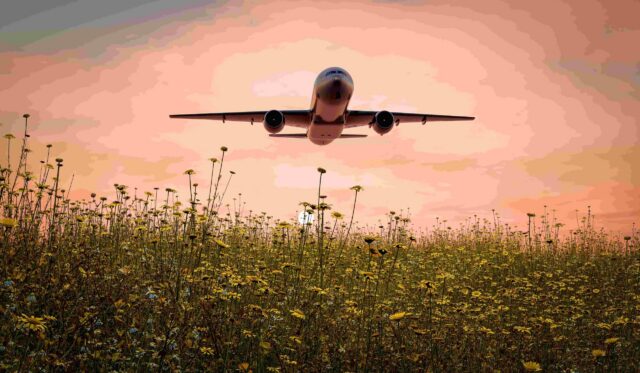Imperial College London’s sustainable air travel institute boosted by £25 million
Imperial College London is establishing a groundbreaking research institute dedicated to developing clean, safe and sustainable air-travel.
Supported by a £25 million philanthropic donation, the Brahmal Vasudevan Institute for Sustainable…

Imperial College London is establishing a groundbreaking research institute dedicated to developing clean, safe and sustainable air-travel.
Supported by a £25 million philanthropic donation, the Brahmal Vasudevan Institute for Sustainable Aviation will pioneer the breakthroughs and technologies to support the aviation industry’s transition to zero pollution.
Its researchers will look at all elements of air transport, from fuel and aircraft design to airport infrastructure, air traffic control and aviation policy.
£25 million donation
The £25 million donation – one of the largest in Imperial’s history – comes from Aeronautical Engineering alumnus Brahmal Vasudevan and his wife Shanthi Kandiah.
Professor Alice Gast, President of Imperial College London, said: “We are deeply grateful to Brahmal and Shanthi for their generosity and vision. They have provided us with an unprecedented opportunity to take on one of the greatest challenges in the fight against climate change.
“The Brahmal Vasudevan Institute for Sustainable Aviation will focus Imperial’s world-class research, recently ranked top in the UK, on the grand challenge of low-carbon flight.
“Translating scientific breakthroughs for societal benefit is Imperial’s mission, and this Institute will empower our researchers to collaborate, innovate and pursue new ideas across fields. The benefits of this work will be felt for generations.”
‘Mammoth task’
Vasudevan said: “Moving towards zero pollution is a mammoth task and aviation, in particular, is a complicated sector to decarbonise.
“Tackling the problem in a systematic and coherent way to achieve the goal of a net-zero, sustainable economy requires high levels of eco-innovation to succeed.
“Shanthi and I believe that there is no better institution in the world to drive pioneering work in this field, and we are delighted to support Imperial’s efforts.”
Mobilising expertise from across Imperial
Based in the Department of Aeronautics, the Brahmal Vasudevan Institute for Sustainable Aviation will be interdisciplinary in its approach, mobilising expertise from across Imperial’s faculties and research centres.
Priority areas of research will include the development and exploration of new low and zero pollution propulsion technologies and the associated developments in engines, aerodynamics, structures, materials, fuels systems, control and aircraft configuration.
The Institute will provide a rapid evaluation of the potential of emerging technologies across the whole aviation ecosystem and will explore how they can be optimally selected, combined and refined to transition most efficiently to zero pollution flight.
‘Next frontier of air travel’
Professor Paul Robinson, Head of the Department of Aeronautics, said: “Sustainable flight is the next frontier of air travel, and the Brahmal Vasudevan Institute for Sustainable Aviation will be leading the charge.
“We know that flying is making a direct contribution to climate change. It also affords us many benefits – it brings people together, supports trade, research, economic growth, medical aid, internationalism, and enables connection between remote and urban areas. Urgent changes need to be made, but we must also ensure that the process is done smoothly, fairly and in a way that maintains the economic and social benefits of flying.
“Achieving net-zero flight will require a radical shift across the whole system of aviation. There is much to do and not much time, but there is a will and determination being shown across the sector and beyond. Through this Institute, we have the talent, resources and research strength to make this happen.”
Subscribe to the FINN weekly newsletter
















